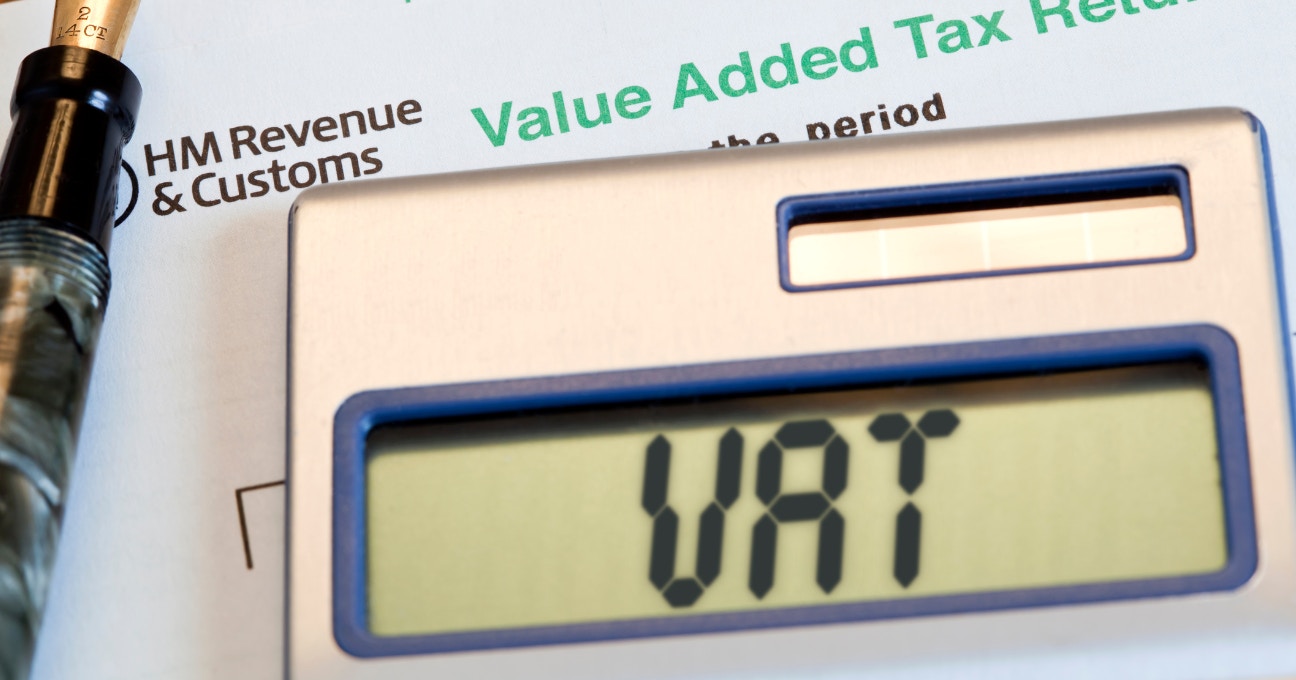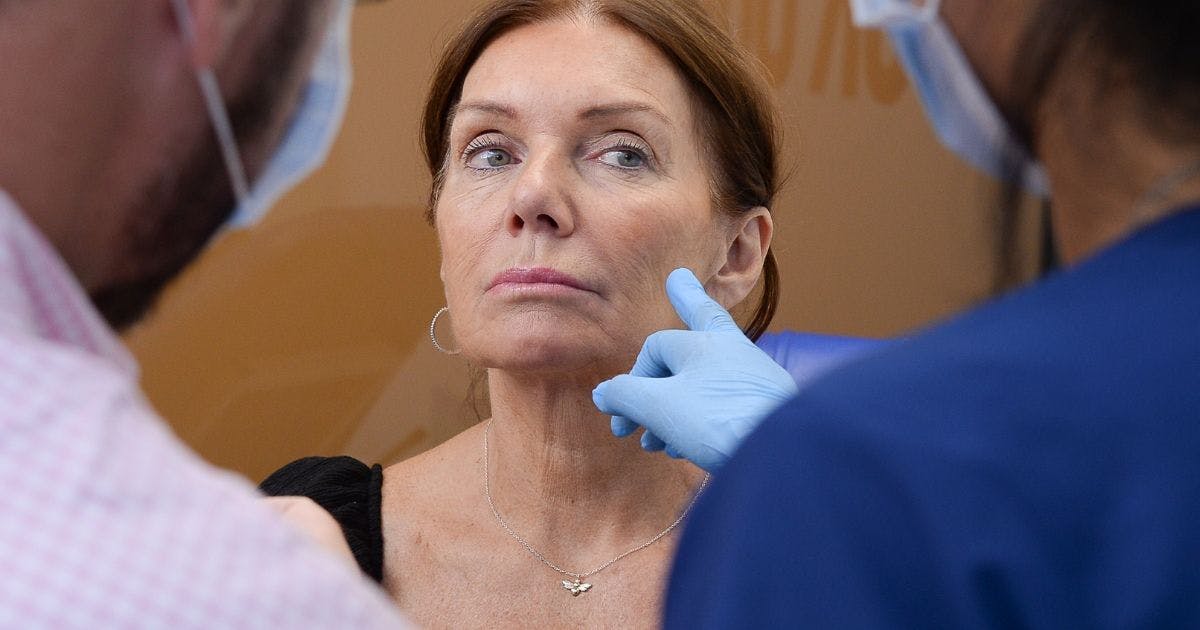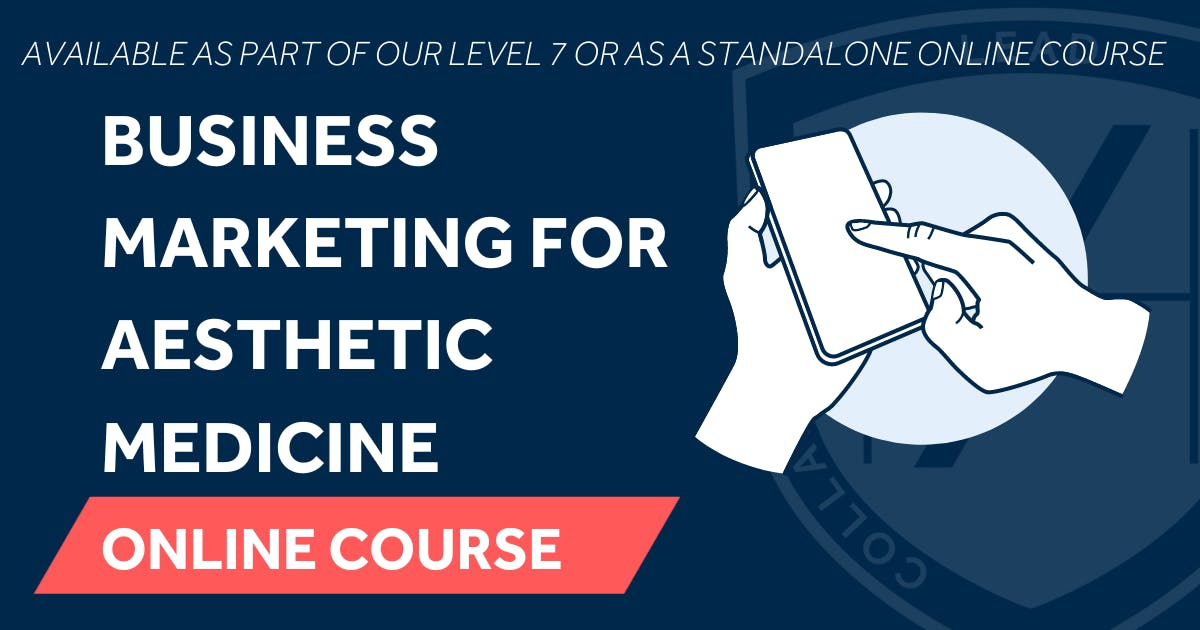‘BoTax’ Decision on VAT for Aesthetic Treatments Case

VAT is payable on cosmetic treatments, whereas medical procedures are VAT exempt. But where do aesthetic treatments fall, given they can have both beautifying and therapeutic benefits? This is the question many clinicians struggle with. Now a landmark ‘BoTax’ decision has amended the scope.
Although this initiative is colloquially known as the ‘BoTax’, it doesn’t just apply to botox. It refers to all non-surgical aesthetic procedures, including dermal fillers.
Read on for a breakdown of the case that’s put this tax conundrum in the spotlight, and what the position is now. Should you pay VAT on aesthetic treatments? Read on to find out…

Illuminate Skin Clinics Ltd v HMRC VAT case
At the heart of this case is Illuminate Skin Clinics, a Kent-based aesthetic practice founded by BCAM president, Dr Sophie Shotter.
The business was involved in a VAT dispute with HMRC which is outlined in today’s ruling. This stemmed from the business taking the decision to ‘refuse repayment of VAT and against an assessment to VAT’ in relation to its aesthetic treatments.
Illuminate Skin Clinics lodged an appeal after a June 2023 First-tier Tribunal Tax Chamber (FTT) ruled against them, meaning this VAT was payable. As stated in today’s ‘BoTax’ case ruling, ‘The issue before the FTT was whether the Appellant was supplying medical care such that its supplies were exempt from VAT.’
The position Illuminate took was that, as a healthcare professional, they provide medical care, which may appear ‘cosmetic’ but also offers therapeutic benefits. Illuminate’s legal team argued that medical care, provided by a GMC-registered doctor, should be exempt from VAT.
Issues raised by the ‘BoTax’ appeal
The FTT appeal raised a number of pertinent issues faced by aesthetic practitioners, including:
- What is the correct test or approach to determine when a service is “medical care”, especially where the procedure has an aesthetic or cosmetic purpose? Is the test based on the “principal purpose” of the supply? Or should you look at whether the intervention has a therapeutic or medical aim?
- Did the FTT fail to apply the test in this specific case, possibly mischaracterising Illuminate’s services as non-medical?
- What is the scope of the exemption, especially when services may have mixed medical and aesthetic elements?
- Whether Item 4, Group 7 of the Value Added Tax Act 1994 (VATA 1994), relating to exemption for medical or surgical treatment in a hospital or regulated institution, is relevant, if the aesthetic clinic later became regulated.
In summary, the appeal largely hinged on this question: if a medically qualified person carries out an aesthetic procedure, how do you determine whether it should be VAT-exempt as medical care or taxed as cosmetic service?
Illuminate argued that ‘the FTT’s definition of medical care… was narrowly confined. It failed to recognise that the concept also includes protecting, maintaining or restoring human health and includes the protection and maintenance of health which does not require a diagnosis.’
It was noted in the final decision that the issue was ‘an important and difficult point. If a registered medical practitioner provides a treatment or intervention that has an aesthetic purpose or effect, under what circumstances might this supply fall within the exemption from VAT for medical care.’
‘BoTax’ VAT case timeline
This case has been rumbling on for some years now. Before we get to what today’s judgement says and what it means for aesthetic practitioners and VAT, let’s break down the timeline of events.
- Illuminate Skin Clinics was VAT-registered from August 2014, then deregistered in May 2017
- HMRC raised a dispute concerning the VAT period ending December 2016
- In April 2019, HMRC issued a decision denying a repayment claim and raised a “best judgment” assessment for “underpaid output VAT” stating this VAT was owed
- Illuminate appealed this to the First-tier Tribunal (FTT), but this was dismissed in 2023
- In 2024, following a campaign to raise support and the £550,000 funding needed to escalate this issue, Illuminate then appealed to the Upper Tribunal (Tax & Chancery Chamber)
- Judgement was made on this appeal, and the decision was made public on 13th October 2025.

Limited success from the appeal judgement
This judgement on the Iluminate appeal to the Upper Tribunal is not a clear-cut win - nor a loss. It’s somewhat limited with a number of outcomes still to be decided.
These are the key points from the judgement…
Initial tribunal was found to have applied a flawed legal test
The appeal tribunal accepted that the First-Tier Tribunal erred in how it applied the “principal purpose / medical care” test in certain respects.
This error was said to be a legal one, as the FTT’s approach to distinguishing a cosmetic procedure from medical care was too rigid. The Upper Tribunal found that the legal framing must properly separate “cosmetic / aesthetic aim” from “therapeutic or health-related aim,” and ensure the principal purpose test is applied carefully.
What this means: The FTT was found to be making decisions based on incorrect methodology. As such, the Illuminate case now needs to be re-evaluated using the correct legal framework.
Illuminate VAT dispute still ongoing
As this judgement established that certain legal errors were made previously, the FTT will now have to reconsider these parts of the case using the correct test. A decision will be made by the FTT once the case has been redetermined. As such, the VAT dispute is still ongoing but Illuminate has been successful in terms of getting the case reviewed.
What this means: The Illuminate case has not been overturned and there is no verdict yet as to whether the disputed VAT needs to be paid.
No conclusion as to whether all aesthetic treatments are VAT-exempt
The appeal tribunal acknowledged merit in some of Illuminate’s arguments about how to assess medical exemption. This is why it determined that the FTT’s original reasoning was legally deficient. However, no judgement was made as to whether all aesthetic treatments offered by the clinic are now VAT-exempt.
What this means: Although there is now a slightly broader scope for assessing what falls under the ‘medical umbrella’, no decision has been made as to which aesthetic treatments should be considered medical versus cosmetic. Illuminate's treatments may still be held as taxable after the FTT review.
Offering treatment as a medic judged insufficient to constitute “medical care”
Having the boundaries redrawn in relation to what counts as “medical care” for VAT exemption is a win for Illuminate. However, the judgement confirms that simply being a registered medical practitioner or offering a treatment with psychological benefit is not enough to confirm VAT exemption. It noted that there must be a substantive therapeutic or clinical purpose, established by evidence, that shows treatment of a disease, disorder or health condition.
What this means: Just because you are a qualified healthcare professional, registered with the appropriate professional body, this does not mean any treatment you offer is automatically considered ‘medical’ and, therefore, exempt from VAT. You must determine, and fully document with evidence, a solid therapeutic or clinical reason as to how this treatment provides treatment of a specific health condition in order for it to be classed as medical. More guidance may be needed on how to analyse treatments that combine both aesthetic and medical benefits.
Raises interesting points around psychological care for aesthetic patients
A point worth noting from this judgement revolves around psychological care for aesthetic patients. This is specifically in relation to whether aesthetic procedures could be considered preventative mental health care in certain circumstances.
Illuminate successfully argued that the FTT’s definition of medical care was too narrow. That it ‘failed to recognise that the concept also includes protecting, maintaining or restoring human health and includes the protection and maintenance of health which does not require a diagnosis.’
‘Treating psychological disorders can amount to medical care’
The judgement stated, ‘It is true that the FTT does not specifically refer to prophylactic or preventative care. It does not acknowledge that medical care can encompass services which are intended to prevent illness in the first place, as long as the link is sufficiently direct…’
‘We had assumed on reading the Decision that prophylactic care was potentially relevant in relation to clients who might be at risk of a mental health disorder, which the FTT described…. In these paragraphs it was the absence of a diagnosis of an existing mental health disorder, and the fact that Dr Shotter was not fully qualified to diagnose a mental health disorder, which led the FTT to its conclusion that what was being supplied was not medical care. The FTT does not say so in terms, but it seems to us that it did not consider that Dr Shotter was not fully qualified to diagnose a mental health disorder, which led the FTT to its conclusion that what was being supplied was not medical care.
‘The FTT does not say so in terms, but it seems to us that it did not consider that Dr Shotter was qualified to identify a treatment as appropriate to prevent a mental health disorder from arising… The CJEU in PFC found that treating psychological disorders can amount to medical care. It would be necessary for the Appellant [Illuminate Skin Clinics] to satisfy the burden on it of establishing that there was a recognised psychological disorder for which the procedure it was performing was an appropriate treatment. The FTT was clearly not satisfied that the Appellant had satisfied that burden in relation to one example… where a client had been diagnosed with clinical depression by another medical practitioner and had a treatment with the Appellant for skin tightening.’
So, the moral of the story here is that you need to be sure there is a genuine correlation between the aesthetic treatment and its benefits to your patient’s psychological state. You also need to have sufficient clinical evidence and records to back up your decision, if you want to secure a genuine medical exemption from VAT.
Looking forward to the final ‘BoTax’ verdict
This landmark case has brought some interesting aspects to light, and we look forward to hearing the final verdict, especially seeing some of the arguments thus far upheld by the courts.
We’ll keep you up-to-date with the latest developments as news becomes available. But in the meantime, here’s a few tips on how to decide when to pay VAT on aesthetic treatments:
There is no VAT on aesthetic treatments when:
- They are used solely to treat a health condition, such as botulinum toxin for hyperhidrosis or migraines
- Treating a health condition is the primary goal, though there may be aesthetic benefits. For example, masseter botox to treat TMJ which may result in jawline slimming. These treatments must only be carried out in CQC-registered premises.
In each of these instances, you must be able to document and provide evidence of the medical requirement for treatment. The onus is always on the taxpayer to prove where exemptions apply.
VAT is payable on aesthetic treatments when:
- The treatment is for purely cosmetic reasons. For example, filler treatments for facial rejuvenation or beautification.
You can find out more about this topic in our 2021 article, Are Aesthetic Treatments VAT Exempt?
Please note: You should always do your own research and take appropriate professional advice for information on taxation, financial obligations and legalities. Whilst we provide information as guidance, do remember that Harley Academy specialises in postgraduate medical aesthetics training courses, not tax.
All information correct at time of publication
Download our full prospectus
Browse all our injectables, dermal fillers and cosmetic dermatology courses in one document
By submitting this form, you agree to receive marketing about our products, events, promotions and exclusive content. Consent is not a condition of purchase, and no purchase is necessary. Message frequency varies. View our Privacy Policy and Terms & Conditions
Attend our FREE open evening
If you're not sure which course is right for you, let us help
Join us online or in-person at our free open evening to learn more
Our Partners













STAY INFORMED
Sign up to receive industry news, careers advice, special offers and information on Harley Academy courses and services


